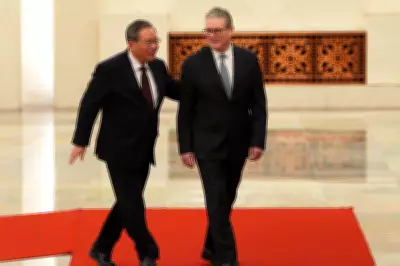
Labour MP Clive Betts has sparked outrage after it was revealed he charged taxpayers over £4,500 for taxi journeys while simultaneously backing policies that increase costs for ordinary motorists.
The Sheffield South East MP, who serves as chairman of the Levelling Up Committee, submitted 338 separate taxi expense claims between 2019 and 2024, averaging nearly two journeys per week at public expense.
Congestion Charge Support While Claiming Taxi Costs
Documents obtained through investigation show Mr Betts supported the expansion of London's Ultra Low Emission Zone (ULEZ) and congestion charge schemes - policies that significantly increase driving costs for constituents - while regularly billing the public for his own transport.
One Conservative MP commented: "This is the height of hypocrisy. He's happy to make life more expensive for everyone else while his own travel is subsidised by those very same taxpayers."
The Numbers Behind the Claims
The expense claims reveal a pattern of regular taxi use including:
- Multiple short-distance journeys around Westminster
- Airport transfers and late-night travel
- Claims submitted throughout the week, including weekends
When confronted about the expenses, Mr Betts defended his claims, stating they were all "above board" and related to parliamentary business. However, critics argue the frequency and nature of the claims raise questions about MPs' attitudes toward public money.
Broader Pattern of Westminster Transport Claims
This case highlights ongoing concerns about parliamentary expenses, particularly transport costs. Several other MPs have faced scrutiny over similar claims, suggesting a culture of entitlement within Westminster.
A taxpayer advocacy group spokesperson stated: "At a time when families are struggling with cost of living pressures, the public expects MPs to exercise restraint and lead by example, not take advantage of the system."
The revelations come amid growing public skepticism about how politicians manage public funds and whether they experience the same financial pressures as their constituents.





